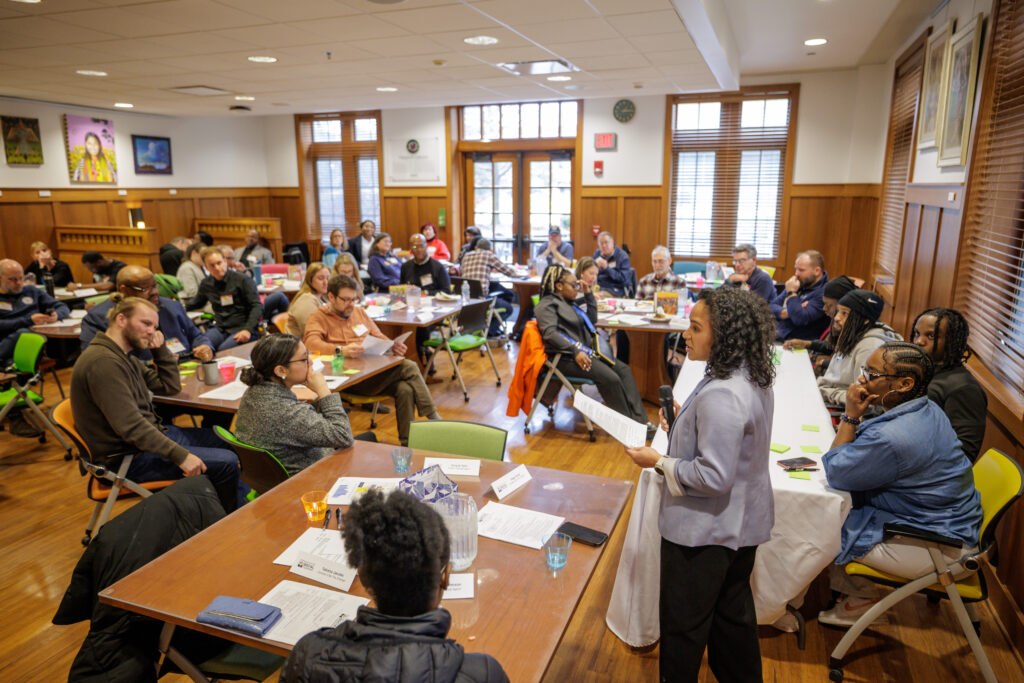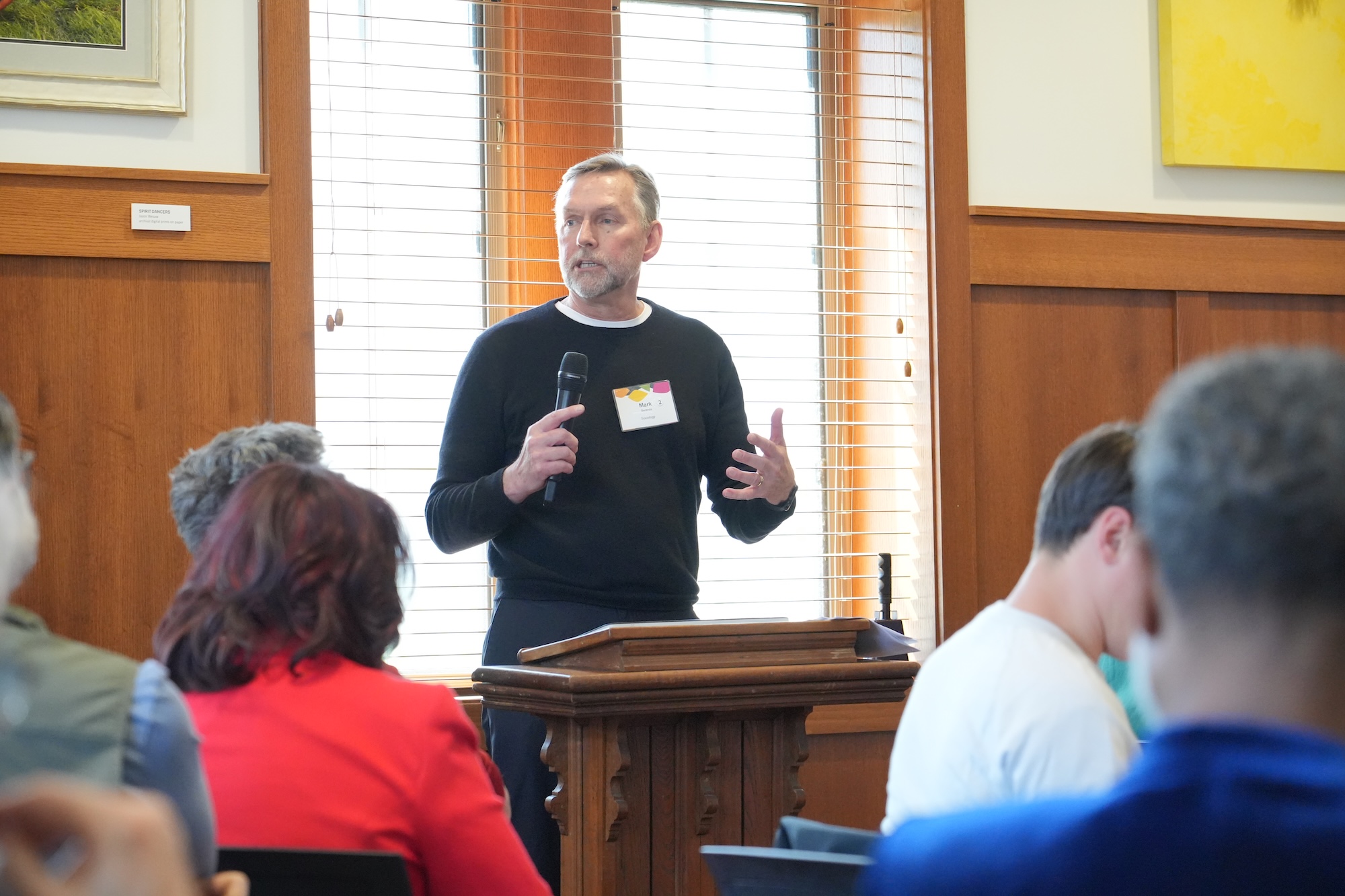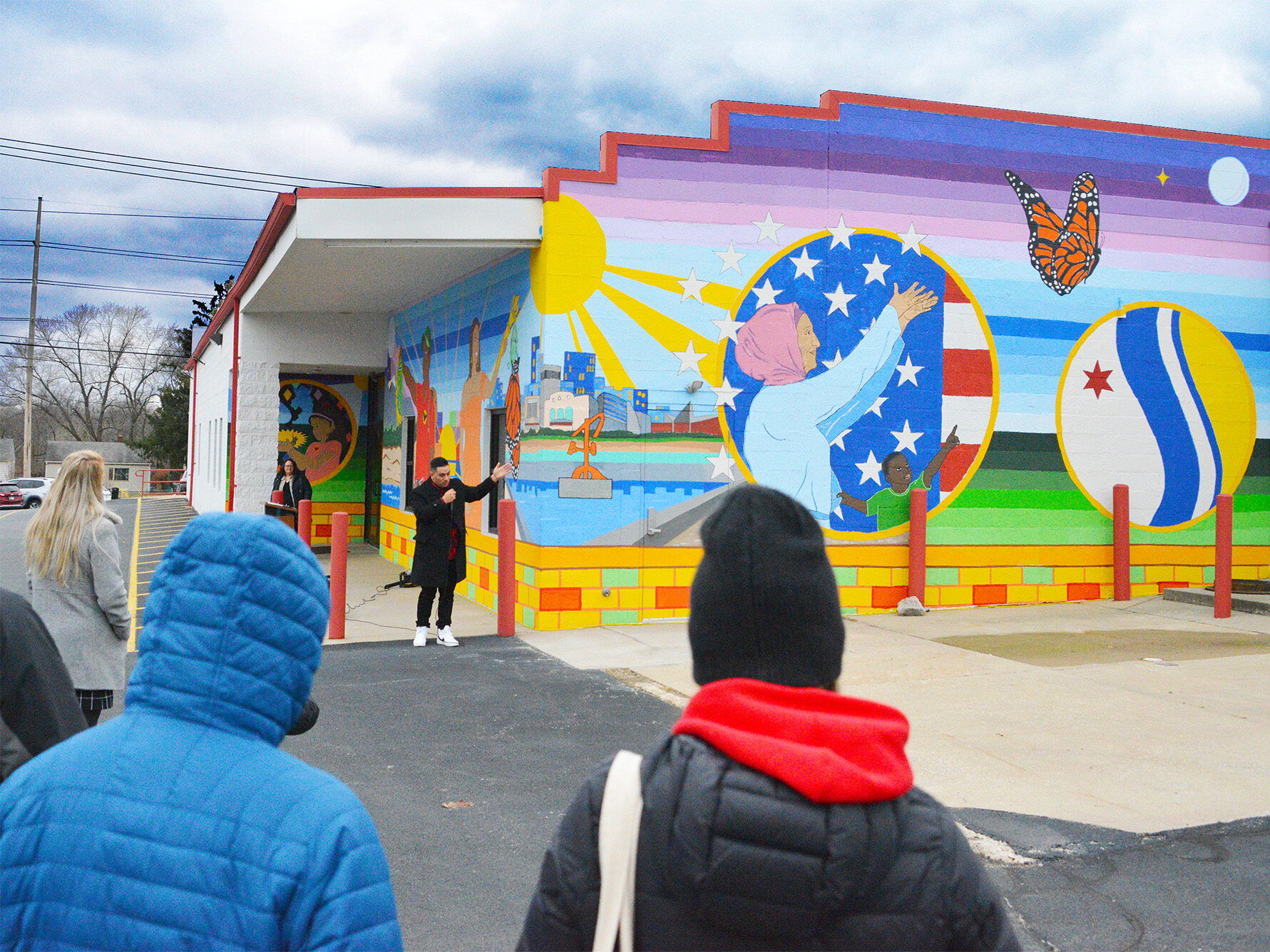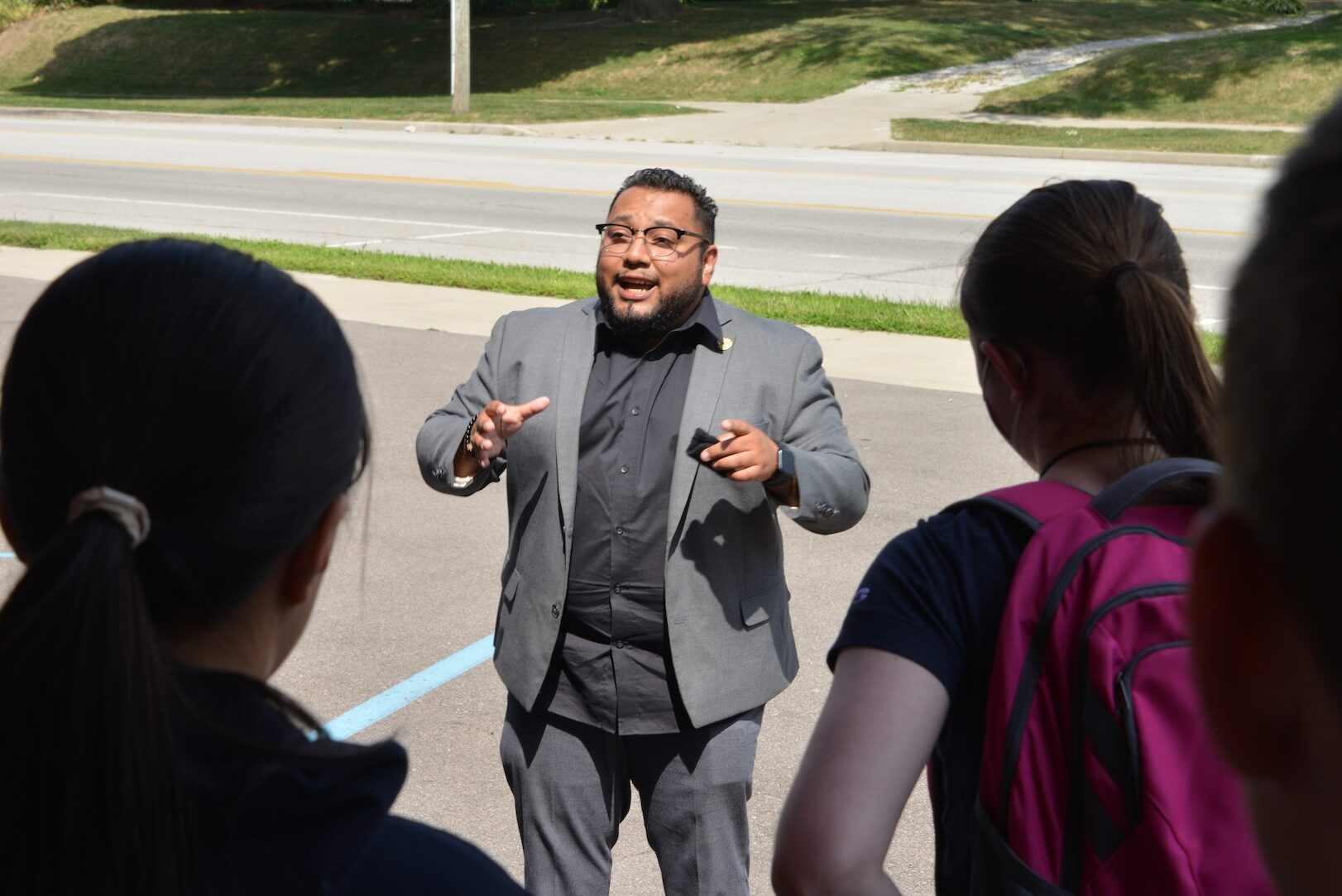collaboratory
South Bend Citizens Collaboratory
Research. Create. Lead.
These are the objectives behind the South Bend Citizens Collaboratory—a home for individuals and organizations committed to the flourishing of our shared community of South Bend. Building on the institute’s deep ties to and ongoing work in South Bend, the Collaboratory brings together the wisdom and experience of South Bend civic leaders with the disciplinary expertise of Notre Dame faculty in order to cultivate long-term, impactful partnerships in service of justice and the common good.
Grounded in Catholic social tradition, the Collaboratory is deeply relational, dignity enhancing, and community centric—with specific projects emerging from longstanding relationships and shared commitments between South Bend stakeholders and University faculty.
Its work involves three interconnected elements: a research hub, story lab, and leadership forum. Together these elements work to advance ways that South Bend and all of its residents can thrive.

Research Hub
The research hub develops a community-driven research agenda, serving as an incubator for public scholarship that identifies and responds to questions of justice in South Bend. Through the hub, Notre Dame faculty can participate in immersive experiences throughout city neighborhoods to engage residents directly impacted by pressing issues like housing, labor, migration, and reentry—setting these issues in their historical and social context. In this way, the research agenda is set by residents and South Bend partners.
The research hub also convenes residents and University faculty to build relationships, examine local issues, and together explore possibilities for collaborative research and response. These convenings are curated by issue and the corresponding expertise of faculty and civil leaders alike. Current issues of focus, identified in neighborhood listening sessions, are education, food security, housing, and violence. The research hub not only fosters connections among participants but also facilitates the identification of evidenced-based best practices to shape structures and inform policies to promote the common good.

“This work fills me with hope that together we will be able to improve educational outcomes in South Bend.”
– Mark Berends, professor of sociology
Story Lab
The story lab celebrates South Bend citizens who are pursuing the common good by telling local stories through creative and historical writing, performance, and visual arts. With large-scale public arts projects, semester courses, and workshops, scholars and citizens promote creative storytelling that recenters vulnerable populations that have been moved to the margins. Creative projects are led by University and local writers and artists, while trainings provide students and residents the research methodologies and artistic skills to contribute to these productions.

To promote storytelling for the common good, the institute hosts workshops on campus, in neighborhoods, in schools, and in carceral facilities. In cultivating an attentiveness to the dignity of the marginalized and developing avenues of expression for such populations to share their history, culture, and identity, the story lab provides a platform for encounter and fosters dialogue between campus and city residents.
Leadership Forum
The leadership forum cultivates civic leaders across academia, government, industry, faith communities, and neighborhood associations by providing them with tools that promote flourishing. Engaging long-term residents, newcomers, migrants, and returning citizens alike, the leadership forum provides convenings, workshops, and training to connect individuals and populations across sectors to cultivate trust, build capacity, increase access, and mobilize resources through ever-expanding networks.
Through the leadership forum, South Bend residents gain conceptual knowledge and practical skills to complement their already acquired wisdom and expertise from lived experience. Working with scholars and practitioners, they are equipped to participate in civic life and to work across differences of background, experience, and political perspective. By participating in the leadership forum, residents not only grow in their individual agency but also develop relational commitments to shape the decisions that impact the daily realities of their respective environments. Through this approach, the Collaboratory champions subsidiarity and recognizes each of its collaborators as an integral contributor to building their respective communities, leading to the thriving of South Bend as a whole.

“I look forward to the ways the Collaboratory will deepen the bonds between the University and South Bend’s Latino community in the years to come.”
– Juan Constantino, chief executive officer at La Casa de Amistad
Advisory Board
- Karla Badillo-Urquiola, the Clare Boothe Luce Assistant Professor, College of Engineering; director, EPOCH Research Lab
- Kathy Burnette, founder and chief executive officer, Brain Lair Books
- Juan Constantino, chief executive officer, La Casa de Amistad
- Marianne Cusato, professor of the practice, School of Architecture; director, Housing & Community Regeneration Initiative
- Allie Dolz-Lane, deputy chief of staff, South Bend mayor’s office
- Marya Lieberman, the Nancy Dee Professor of Cancer Research, Department of Chemistry & Biochemistry
- David Martin, artist, citizen of the Pokagon Band of Potawatomi
- Jose “Hameem” Otero, director of resident life, Dismas House
- Dion Payne-Miller, organizing fellow, We Make Indiana
- Alfonso Pedraza-Martinez, the Greg and Patty Fox Collegiate Professor of IT, Analytics, and Operations, Mendoza School of Business; director, Humanitarian Operations Lab and Meyer Family Business on the Frontlines
- Roy Scranton, associate professor, Department of English; director, Environmental Humanities Initiative (EHUM)
- Paul Winters, associate dean for academic affairs; Keough-Hesburgh Professor of Sustainable Development, Keough School of Global Affairs

Get connected with the Collaboratory
If you have ideas for new partnerships and projects or want more information about the Collaboratory, contact the institute’s assistant director, community partnerships and programs, Michael Hebbeler, at hebbeler.2@nd.edu or 574-631-5779.
